The Headlines
This week, the MICRC culled down their expansive list of draft maps and moved a total of 12 draft maps forward to the formal public comment period. Voters Not Politicians is concerned about the overall partisan fairness metrics of several proposed maps, but there are a few options submitted by individual commissioners that both address the court’s concerns and improve on the partisan fairness of previous maps. More on that in The Details!
On the Voters Ed Fund side, we’re trying a new approach to inform even more voters about the changes from Proposal 22-2: a Letter to the Editor Write-In!
The Details
Redistricting
- On Tuesday, the commission voted to submit six collaborative maps to the court and for public comment:
- Dove
- Cardinal
- Crane
- Starling v3, an updated version of Starling v2 drafted by Commissioner Muldoon
- Finch v2, an updated version of Finch v1 drafted by Commissioner Eid
- Heron, a map that was not previously named but is nearly identical to Hummingbird except for some deviations in Lincoln Park
- Commissioner Kellom put forward Phoenix, a map inspired by Hummingbird and Flamingo, as her own individual map submission after the commission previously voted down that map.
- Along with Commissioner Kellom, Commissioners Curry, Lange, Orton, Szetela, and Wagner have also submitted their own individual maps for public comment. You can view the individual and collaborative maps and data files here.
- We commend the commission for putting forward several maps that address the court’s concerns and that provide historically underrepresented communities in Detroit with the opportunity to elect candidates of their choice. All of the collaborative maps and 5 of the individual maps create four “opportunity districts” for Black voters, which is a significant improvement over the Linden map that was used in the 2022 elections.
- We’re concerned that the commission’s experts and some members of the media are saying that all of these maps are “fine” on partisan fairness. There is a wide range of partisan bias among the maps, and less partisan bias is always better.
- The way the constitutional amendment is written, all criteria are required, but in a prescribed priority order. Therefore, if and when there is a tradeoff required, the higher priority criterion should be met first. When looking at any two maps that both meet VRA criteria and balance communities of interest, the one with less partisan bias should be chosen.
- Several of the maps put forward for public comment (Dove, Curry, Cardinal, Crane, Orton, Finch V2, Lange, and Wagner) are worse than the Linden plan (used in 2022) on at least one measure of partisan fairness. Dove is particularly bad, with an efficiency gap of 4.58%, well out of line with the other maps submitted and with the Linden plan.
- Three of the maps (Szetela, Heron, and Kellom) do better overall on partisan fairness than the Linden plan. Of these, Szetela’s map seems particularly responsive to communities of interest feedback received from the public.
- Along with our partners, VNP will continue investigating these maps and will advise our volunteers and supporters in the coming days as public hearings begin.
- The commission will be hosting virtual town halls on May 29th and June 6th for voters in the affected districts to receive information on the draft proposed maps. Each town hall will have a morning session (10 AM – 1 PM) and an evening session (5 PM – 7:30 PM). You can view these town halls via the MICRC YouTube Channel or sign up here to provide public comment and ask questions.
- The commission will also host three in-person public hearings in Detroit the following week. These public hearings are focused on gathering public feedback on the submitted draft maps:
- June 11th at Detroit Cass Tech/2502 Second Ave.: 10 AM – 3 PM and 4 PM – 7 PM
- June 12th at Detroit King/3200 E. Lafayette: 10 AM – 3 PM and 4 PM – 7 PM
- June 13th at Detroit Renaissance/6565 W. Outer Drive: 10 AM -3 PM and 4 PM – 7 PM
Proposal 22-2 Implementation
Throughout 2023, many city and township clerks told us that the best way organizations like Voters Ed Fund can support them is by informing voters about the upcoming election changes. That’s why Voters Ed Fund is providing as many opportunities as possible for our volunteers to inform their communities all over Michigan about their new voting rights.
Last week, we hosted our first Letter to the Editor Write-In event, in partnership with the Grosse Pointe Public Library! An offshoot of our long-running Letter to the Editor Workshop program, this event gave volunteers direct instructions and a written guide on how to write and submit letters to their local newspaper, then gave all attendees time to work on their own letters in a collaborative setting.
Every attendee left with a completed draft of a Letter to the Editor that informs their community about aspects of Prop 22-2 and encourages voters to participate in the upcoming elections!

What’s Next
Voters Not Politicians is committed to making sure Metro Detroiters make their voices heard on the draft maps. The commission will be hosting virtual town halls on May 29th and June 6th, as well as in-person public hearings on June 11, 12, and 13th. VNP will be dropping flyers in several neighborhoods across the affected districts, directing residents to the public hearings. We will also continue reaching out to residents through our digital ad campaign, which has thus far reached almost 200,000 Metro Detroit residents.
Voters Ed Fund is also continuing our mission to inform and engage every eligible voter to make their voice heard in the upcoming election. We will be training more volunteers as Voter Educators in their local communities, and hosting more letter writing events so that every Michigander is made aware of their new voting rights.
